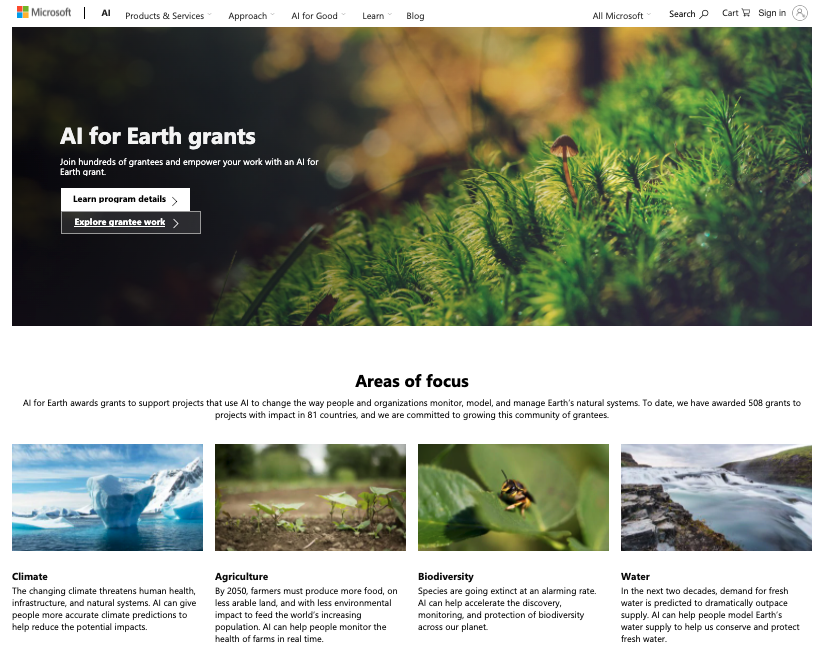Our proposal “Near Real-time Forecasting and Change Detection for an Open Ecosystem by Integrating Artificial Intelligence and Ecological Modeling” has been selected for an AI for Earth Microsoft Azure Compute Grant. We are awarded $15,000 computing credits for using Azure cloud services to develop and train geospatial deep learning models for biodiversity protection.
Abstract:
Open (i.e., non-forest) ecosystems, such as savannas, shrublands, and grasslands, make up over 40% of the global total ecosystem organic carbon, and harbor a substantial proportion of the world’s biodiversity. Accurately forecasting the state of vegetation and detecting abnormal changes are critical for managing the biodiversity, fire, water, and carbon in these open ecosystems. This proposed project will integrate state-of-the-art AI techniques with ecological models with the goal of providing accurate forecasting and change detection on the state of vegetation in an open ecosystem. We will focus on the Cape Floristic Region (CFR) of South Africa, which contains 20% of Africa’s plant diversity and is a Global Biodiversity Hotspot and UNESCO World Heritage Site. The outcomes of this project will include models and tools that can provide near real-time forecasting and change detection for the studied open ecosystem of CFR and could also be applied to other ecosystems with similar dynamics.
Our research team consists of:
• Dr. Yingjie Hu, Principal Investigator, GeoAI Lab, Department of Geography, University at Buffalo, State University of New York, United States
• Dr. Adam M. Wilson, Co-Investigator, Wilson Lab, Department of Geography, University at Buffalo, State University of New York, United States
• Dr. Glenn R. Moncrieff, Co-Investigator, Fynbos Node, South African Environmental Observation Network, South Africa
• Dr. Jasper A. Slingsby, Co-Investigator, Fynbos Node, South African Environmental Observation Network, South Africa
